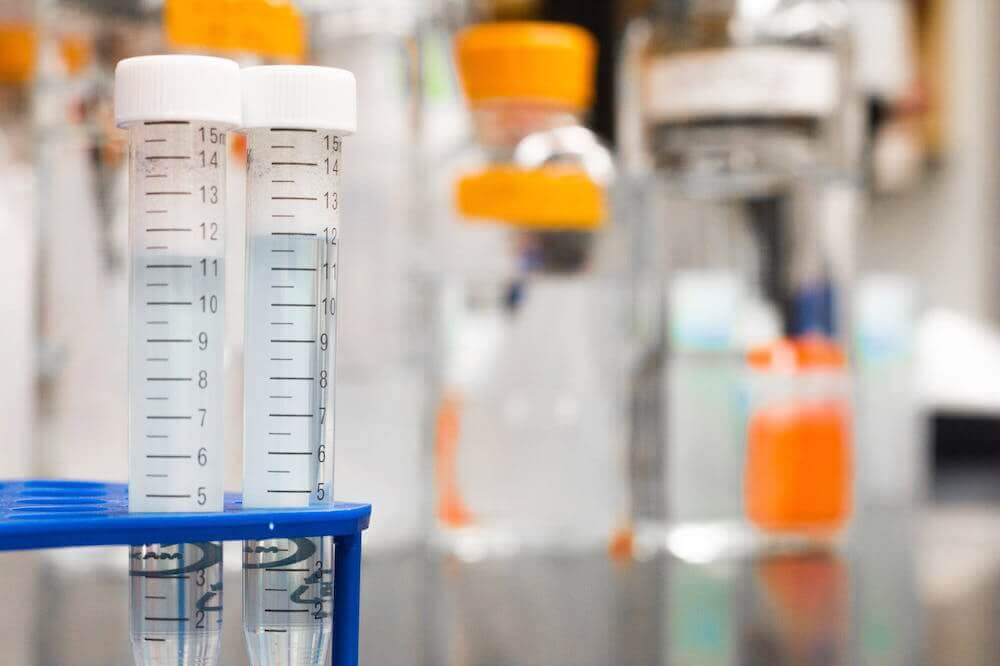At-home genetic testing, also called direct-to-consumer (DTC) genetic testing, has become a popular way for people to learn about their ancestry and family lineage. Some at-home genetic tests that claim to determine a person’s potential risk for health conditions, such as cancer, heart disease, and Alzheimer’s disease, have become available.
Here, Helen Dellas, MS, CGC, a genetic counselor at Dana-Farber Cancer Institute, answers some questions you may have about the benefits and limitations of at-home genetic testing.
What are at-home genetic tests?
At-home genetic tests provide people with a way to receive genetic testing without seeing a medical professional. Companies that sell these at-home genetic tests will often mail a saliva kit to the consumer. In the past, people used these tests to learn more about their ancestry, but people are increasingly interested in using them to test for inherited risks of cancer and other health conditions.
How do at-home genetic tests test for cancer risk?
There are several services available, each with shortcomings:
- DNA sequencing with a health report: Companies will send a saliva kit to your home, use the cells you provide to look at specific variations in your DNA, and produce a report based on the association between the variants they find and health risks. These services may search for the presence of a limited number of common mutations associated with increased risk of cancer, potentially missing key information that could help you understand your cancer risk.
- Interpretation of raw sequencing data: Companies may offer further examination of raw DNA sequencing information for an additional fee. Alternatively, a third-party company may offer interpretation of health risks, including cancer risks, based on uploaded DNA data. A recent study looked at the accuracy of those third-party DNA sequence interpretations and found that the results were inaccurate up to 40% of the time and could not be clinically confirmed.
- Commercial lab tests: Some commercial labs are offering panel tests similar to those that a medical team would order, but results are provided directly to a consumer. Some labs offer optional genetic counseling. These tests might provide accurate results for what you request, but the personal experience of meeting with a genetic counselor and physician to receive a personalized medical recommendation is missing. In addition, genetic counselors can provide guidance prior to testing to help identify the right tests for you. They can also help you understand the nuances of the results in the context of your own personal and family medical history.
What do people hope to learn from these tests? Do they offer satisfactory answers?
People who purchase at-home genetic tests are often trying to learn about their health risks to be proactive about preventative measures they can take to potentially reduce their risk and be as healthy as possible. However, some at-home genetic tests do not provide conclusive answers to questions about cancer risk.
It can be difficult for people without training in genetics to distinguish clinical grade genetic testing from more recreational testing. People looking to learn about their personal cancer risk and methods to reduce this risk should meet with a healthcare provider, such as a genetic counselor, to discuss comprehensive cancer genetic testing options.

Are at-home genetic tests reliable?
The ability of at-home genetic tests to provide information about your cancer risk is variable.
Some at-home genetic testing companies only identify a small number of common mutations associated with increased cancer risk. For example, a test might identify whether or not you carry one of the three common Ashkenazi Jewish founder mutations in the BRCA1 and BRCA2 genes. This information may be helpful for people with Ashkenazi Jewish heritage. Yet, even in patients with Ashkenazi Jewish descent, additional genetic testing (beyond at-home genetic testing) may be recommended, given that some Ashkenazi Jewish patients harbor a mutation elsewhere in one of the genes, or in a different gene that would not be assessed through at-home genetic testing.
Learn more about the genetic counseling process at Dana-Farber here.
Should I trust the results of at-home genetic tests?
The biggest concern with at-home genetic tests is that the results can provide people with false hope and false reassurance about their cancer risk. People may believe that a negative test result means they are “off the hook” for cancer risk, but this is not necessarily the case.
On the flip side, a person who receives worrisome results from an at-home test and seeks the advice of a physician or genetic counselor will likely be advised to be re-tested with a clinical test. A clinical test will include a comprehensive analysis and expert interpretation of the results using the most up to date evidence.
Learn more about the genes that influence cancer risk and the cancer genetics services Dana-Farber provides here.
Are there other concerns about at-home genetic tests?
Medical information is protected in the U.S. as private data. DNA tests performed by a clinician is placed in your medical record and cannot be shared with anyone without your written permission.
With at-home genetic tests, each company provides its own privacy agreements, but the privacy and security of the data is not protected by law. Some companies routinely share or sell access to their genetic information.
What should I do if I receive a worrisome result on an at home genetic test?
People who believe they may have a heightened cancer risk based on at-home genetic test results should see a genetic counselor for confirmatory testing and a discussion of cancer risks. Those local to Boston can visit Dana-Farber’s Center for Cancer Genetics and Prevention. Dana-Farber offers both in-person and virtual visits, and our genetic counselors work together with cancer genetics physicians to ensure you receive appropriate follow-up care. A genetic counselor in other parts of the country can be found through the National Society of Genetic Counselors “Find a Genetic Counselor” tool.
